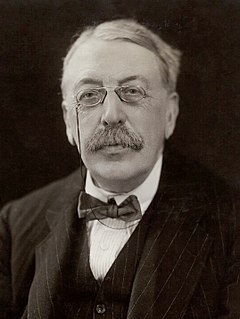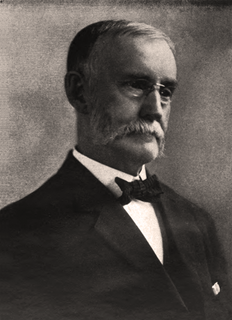A Quote by Charles Villiers Stanford
To love as Christ loves is to let our love be a practical and not a sentimental thing.
Quote Topics
Related Quotes
As he loves us, he would have us love others. We say men are not worthy of such friendships. True, they are not. Neither are we worthy of Christ's wondrous love for us. But Christ loves us-not according to our worthiness-but according to the riches of his own loving heart! So should it be with our giving of friendship-not as the person deserves-but after the measure of our own character.
Men have, for the most part, done with lamenting their lost faith. Sentimental tears over the happy, simple Christendom of their fathers are a thing of the past. They are proclaiming now their contempt for Christ's character, and their disgust at the very name of love. Scorn and hatred, difference and division, must be more than ever our lot, if we would be the followers of Christ in these days. Conventional religion and polite unbelief are gone forever.
Christ prays in me, Christ works in me, Christ thinks in me, Christ looks through my eyes, Christ speaks through my words, Christ works with my hands, Christ walks with my feet, Christ loves with my heart. As St Paul's prayer was: I belong to Christ and nothing will separate me from the love of Christ. It was that oneness, oneness with God in the Holy Spirit.
Love is costly. T forgive in love costs us our sense of justice. To serve in love costs us time. To share in love costs us money. Every act of love costs us in some way, just as it cost God to love us. But we are to live a life of love just as Christ loves us and gave Himself for us at great cost to Himself.
Romantic love is blind to everything except what is lovable and lovely, but Christ's love sees us with terrible clarity and sees us whole. Christ's love so wishes our joy that it is ruthless against everything in us that diminishes our joy. The worst sentence Love can pass is that we behold the suffering which Love has endured for our sake, and that is also our acquittal. The justice and mercy of the judge are ultimately one.
Whenever we think of Christ, we should recall the love that led Him to bestow on us so many graces and favors, and also the great love God showed in giving us in Christ a pledge of His love; for love calls for love in return. Let us strive to keep this always before our eyes and to rouse ourselves to love Him.
When we truly understand what it means to love as Jesus Christ loves us, the confusion clears and our priorities align. Our walk as disciples of Christ becomes more joyful. Our lives take on new meaning. Our relationship with our Heavenly Father becomes more profound. Obedience becomes a joy rather than a burden.








































